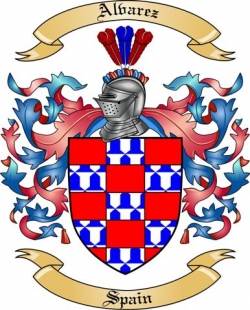
She discovered through words she could build her own worlds that both revealed and transcended the meaning of her life. Thrown into a foreign language and culture as a child, Alvarez found refuge in books and writing. Julia Alvarez: Official Author Website.Dominican author Julia Alvarez has given voice to the themes of displacement, alienation, and search for identity in her poetry and fiction."Julia Alvarez." Contemporary Authors Online."Julie Alvarez: Books that Cross Borders." Publishers Weekly, v. Profits from the 60-acre farm go to the Alta Gracia Foundation, which promotes literacy programs for the local population. Alvarez and Eichner started an organic coffee farm modeling sustainable methods in the Dominican highlands. In 1989, Alvarez married Bill Eichner, an eye surgeon whose humanitarian medical missions have taken him to many Third World nations. She became a professor of English at Middlebury College in 1988 and has been its writer-in-residence since 1998.

She taught at various schools including Phillips Andover, the University of Vermont and the University of Illinois. A new young adult novel, Finding Miracles, was published in 2004.Īlvarez earned her undergraduate degree from Middlebury College in 1971 and a master’s degree in creative writing from Syracuse University in 1975.
JULIA ALVAREZ FAMILY TREE FREE
She has also written young adult books including The Secret Footprints (2000), How Tia Lola Came to Visit Stay (2001) and Before We Were Free (2002). A collection of autobiographical essays, Something to Declare, was published in 1998. Her other poetry collections include The Other Side: El Otro Lado (1995) and The Woman I Kept to Myself (2004). In 1984, Alvarez published Homecomings, a poetry collection about facing her 33rd birthday without a secure job or a family of her own. In the Name of Salome, published in 2000, is based on the life of Dominican political poet Salome Urena and her daughter, Camila.

Published in 1997, ¡Yo! focuses on Yolanda Garcia. Interrelated stories narrated by the four Garcia sisters describe their difficulties adjusting to New York City after leaving the Dominican Republic. Her popular first novel, How the Garcia Girls Lost Their Accents, was published in 1991. The immigrant experience and bicultural identity is the subject of much of Alvarez’s fiction and poetry. In the Time of the Butterflies was a finalist in 1995 for the National Book Critics Circle Award in fiction, selected a Notable Book by the American Library Association in 1994 and chosen as one of the Best Books for Young Adults by the Young Adult Library Services Association and the American Library Association in 1995. Alvarez says she wrote the book as a testament to these remarkable women who “have served as models for women fighting against injustices of all kinds.”

The book has alternating first-person narratives from the three martyred sisters and the fourth surviving sister, Dedé. When asked why she wrote In the Time of the Butterflies, Alvarez said that “being a survivor placed a responsibility on me to tell the story of these brave young women who did not survive the dictatorship.” In the Time of the Butterflies is a fictional account of the murders of the revolutionary Mirabal sisters.

“Language is the only homeland, Czeslow Milosz once observed, and indeed, English, not the United States, was where I landed and sunk deep roots.” “I consider this radical uprooting from my culture, my native language, my country, the reason I began writing,” Alvarez has said. She was homesick and faced alienation and prejudice. The Alvarez family settled in Queens, N.Y.Īlvarez was 10 years old when her family returned to the United States, and she had a difficult time adjusting to immigrant life and learning English. They returned to the United States in August of 1960, four months before the founders of the underground, the Mirabal sisters, were brutally murdered by the government. When her parents became involved in an underground movement to overthrow Trujillo, the Alvarez family was forced to flee the Dominican Republic in order to escape imprisonment. Three months later, her parents returned to their native Dominican Republic after a self-imposed exile from General Rafael Trujillo’s dictatorship. Julia Alvarez was born in New York City on March 17, 1950, the second of four daughters.


 0 kommentar(er)
0 kommentar(er)
